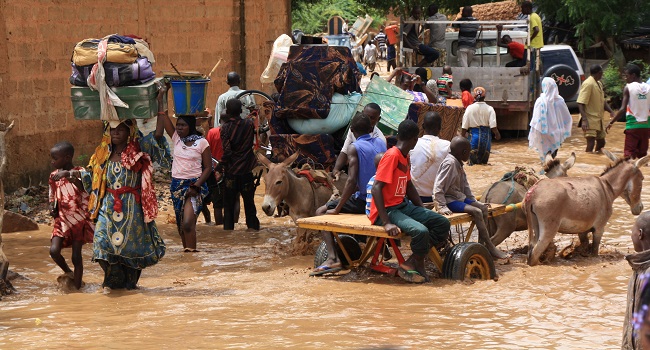Niger’s military government announced Thursday that the start of the new academic year will be delayed by nearly a month due to severe flooding across the country.

A government spokesperson, speaking on state television, said, “Several schools have been affected, and others are being occupied by those impacted.” The school year, originally set to begin on October 2, has been pushed back to October 28.
The West African nation has been battered by relentless rainfall in recent weeks, resulting in over 300 deaths from drowning or building collapses, according to the interior ministry. The central-southern city of Maradi, one of the hardest-hit areas, has set up around 100 tents in schools to accommodate displaced residents.
The International Rescue Committee reports that over 800,000 people have been affected by the floods, describing the situation in Niger, Mali, and Nigeria as some of the “worst floods in 30 years.”

Niger, like other countries in the semi-arid Sahel region, is grappling with the impacts of climate change. In addition to floods, the country has experienced droughts and crop failures in recent years. Scientists attribute the increasing frequency and intensity of extreme weather events to climate change.
The military government claims to have made 9,700 tonnes of grain available to those in need and insists the “situation is under control.” However, concerns are growing about damage to culturally significant buildings. A 19th-century mosque made of wood and straw recently collapsed in Zinder, the country’s second-largest city. There are also fears about potential damage to the historic center of Agadez, a UNESCO World Heritage Site.
bbc.com



